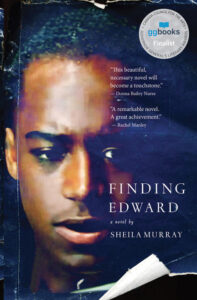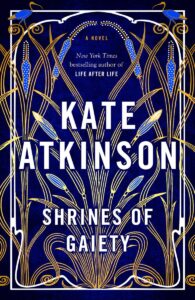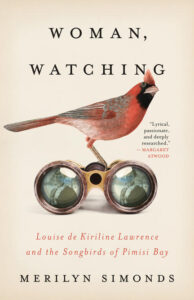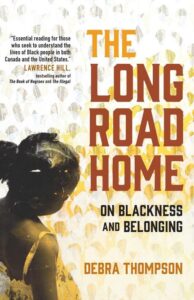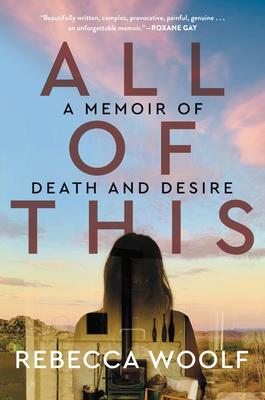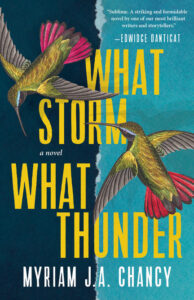October 14, 2022
Finding Edward, by Sheila Murray
After hearing great things about Sheila Murray’s novel Finding Edward, I finally picked it up last weekend to discover it lives up to the praise of critics like Donna Bailey Nurse (who’s written, “This beautiful necessary novel will become a touchstone.”)
And then this week, it was nominated for the Governor General’s Literary Award!
Though it took a bit of time for all its pieces to come together for me, a book that starts off kind of quiet, which is fitting seeing as its protagonist, Cyril, is quiet, understated, someone you might not even notice if you passed him on the street.
Cyril, just 21, raised by his mother in Jamaica after his white English father leaves their family, is left alone after his mother dies, but he has an inheritance from a benefactor, his mother’s former employer, who’d encouraged him to pursue an education, and Cyril decides to finally take this advice and travels to Canada to enroll at then-Ryerson University (the novel is set in 2012), but being in Canada, and being Black in Canada, turns out to be far more complicated and fraught than he’d expected. His understanding of situation is deepened after he finds photographs and documents from the 1920s pertaining to a mixed race child called Edward, and begins archival research to determine Edward’s identity, thereby weaving in key (and under-celebrated) elements of Canadian Black history including Thornton Blackburn, who started Toronto’s first taxi company in the 1850s; Mary-Ann Shadd, the first Black newspaper publisher in Canada; the story of Nova Scotia’s Africville community; the experiences of Black railway porters (which is also portrayed in the Giller-nominated novel The Sleeping Car Porter, by Suzette Mayr); and more.
At the same time, Cyril’s violent encounters with police and precarious situation with work, housing, school and finances (he’s helping to support his two siblings back in Jamaica) are reflective how little has changed over the years, all this bringing him into contact with local Black activists who help him to imagine possibilities for a different kind of Black future.
Just a satisfying literary experience, plus a rich portrayal of Black experience in Toronto and beyond.
October 6, 2022
Shrines of Gaiety, by Kate Atkinson
In Shrines of Gaiety, Kate Atkinson’s thirteenth book—which is truly an amalgam of her divergent literary preoccupations over the last twenty five years—there are secret exits, disorienting corridors, narrow staircases, and a bar that swings out of sight at the push of a button, and so too are there tricks in her prose, although they’re not cheap ones, and the prose itself is truly luminous (and also had me reaching for my dictionary several times—”testudinal”…who knew?).
Like all of Atkinson’s books, this one plays tricks with time—albeit less overtly than Life After Life, just say—the entire book taking place over the course of a few weeks, but its chronology including small jumps back in time to show readers what we think we already know from a different angle—and perhaps also suggesting that moving forward in time in 1926 was an uneasy prospect, the traumas of WW1 still unbearably present, no matter how nobody wanted to talk about it.
The novel opens with the release from prison of Nellie Coker, the notorious owner of several clubs in London’s Soho district, who’d been put away for a few months for her defiance of licensing laws. She’s the mother of two sons and a handful of daughters, plus the possessor of shady origins and dealings just as dodgy, which is why John Frobisher is on her tail, a police inspector relocated to the local precinct to look into corruption and possible alliances between Nellie and the force.
On top of that, women’s bodies keep turning up, and it’s two missing girls who’ve brought Gwendolen Kelling from York, a librarian who’s recently experienced her own change of fortune and who has volunteered to come to the city to seek her friend’s runaway half-sister and her companion, two young teens starry-eyed and looking for fame on the London stage and who are therefore ripe for exploitation…
It’s a seedy underbelly for a world that, on its surface, is so sparkling and fun, and it’s this juxtaposition that Atkinson explores, as well as the cheapness of that shiny veneer and what lies beneath it, which is trauma, addiction, violence, and longing. An exploration that feels quite resonant a century after the story is set—as well as ominous, because 1926 would be as good as it got for a very long time.
John Frobisher is no Jackson Brodie, and it becomes clear that Atkinson is not launching a detective fiction series here, the novel remarkably self-contained, all its ends tied up neatly—though perhaps with a bit too much fizzle after more than three hundred pages of sizzle. (So what, is the question I expect my favourite critic Rohan Maitzen will be asking, and I can’t wait to read her review, because I’m always just dazzled by Atkinson, while Maitzen holds her to the rigorous literary standard I think her work deserves…)
In the four days since I finished reading Shrines of Gaiety, however, the story has very much stayed on my mind, suggesting the novel is not mere frippery, but instead a work of literature that—like the best of Atkinson’s works—asks vital questions about the terrible sublimity of human experience and the real meaning of the stories we tell.
September 29, 2022
Woman, Watching, by Merilyn Simonds
I LOVED this book! Louise de Kiriline Lawrence is the most fascinating woman I’d never heard of, born to Swedish aristocracy, goddaughter of the Queen of Denmark, trained as a Red Cross nurse in WW1, which is how she met her Russian husband, whom she followed into a post-revolutionary Soviet Union beset by civil war, and then he was eventually killed by the Bolsheviks, and in the aftermath of that loss, she emigrates to Canada to begin nursing in Northern Ontario, where she becomes the nurse to the Dionne Quintuplets during their first year of life…all this taking up just 64 pages in a book that runs for 300 more.
Because after those extraordinary formative experiences, according to Merilyn Simonds in biography Woman, Watching: Louise de Kiriline Lawrence and the Songbirds of Pimisi Bay, is where the real story begins, Lawrence buying a rural property where she builds a log cabin (without plumbing or electricity) and becoming one of the foremost ornithologists of her time, thanks to her own powers of observation and correspondence with other bird experts who informed her ideas. She’s able to note effects of habitat loss and other human interference before Rachel Carson became well known or celebrated, build support and information networks with other women birders, and write six books, many articles and magazine stories, and a foundational monograph on woodpeckers.
Born into affluence, Lawrence’s early years of hardship would have primed her to be resourceful and grateful for small pleasures, but even still, her strength and stoicism were remarkable—there is a part where she ventures into the bush to find moss with which to insulate her windows for her unheated cabin, and then she falls and dislocates her shoulder, but (as she reports cheerfully to her correspondent—she was also a prolific letter writer, fortunately for her biographer!) she was able to push the joint back into place AND ended up getting some of the best moss she’d ever gathered.
In some ways, this story of Lawrence’s cabin near North Bay reminded me of Virginia Lee Burton’s The Little House, with the city ever encroaching, growing closer. It’s also a story of the North American Conservation movement (some parts of this mapping beautifully with Michelle Nijhuis’s Beloved Beasts, another book I loved), of discrimination against women in science, of changes to science so that amateur observers have less to contribute, of the struggles in the career of a writer, and the perils of growing old, but most of all, it’s a story about birds, and what we might see if pay attention to the world around us, of the wonders and miracles of the natural world.
September 13, 2022
The Long Road Home: On Blackness and Belonging, by Debra Thompson
Debra Thompson’s The Long Road Home: On Blackness and Belonging is an excellent and bracing work of memoir and social science, providing a Canadian lens on topics explored in the works of Isabel Wilkerson and Ta-Nehisi Coates. Thompson writes about being a Black Canadian and her relationship to America, the land from which her once enslaved ancestors had escaped for Canada, which makes it a curious kind of homeland. And then about what kind of “escape” Canada offered after all, Canada’s own legacy of enslavement and racism seemingly muted in contrast to its southern neighbours, but that legacy lives. Growing up in Oshawa, ON, during the 1980s, Thompson was so often the only Black person, “[which] didn’t make me feel particularly unique or successful or special. It made me think that there was something inherently wrong with Black people and that I had to fight against it every day to defy what the fates had in store for us.”
After completing her doctorate (with experiences in academia rife with anti-Black racism), Thompson arrives at Harvard on a post-doctoral fellowship in 2010, just as the hopefulness of America’s first Black president was beginning to crest, and the story of her decade to follow traces a powerful trajectory in American history and politics, particularly in regards to race. She writes of her own ambivalence towards notions of American democracy, an ideal that has forever failed to live up to its potential and was imagined for the white men who have long been its beneficiaries, a process in which “African Americans are perpetual losers.” Her connection to American is further complicated as she moves on to teach in a town in rural Ohio, then in Chicago, and finally Oregon, as American moves from Obama to the election of Donald Trump, and then the “reckoning” of Black Lives Matter throughout the entire decade and public demonstrations following the murder of George Floyd in 2020. (She wonders if racial justice, for many white liberals, wasn’t just another Covid hobby to cut through the boredom, up there with Tiger King and sourdough.)
n 2020, Thompson moves—with her American partner and their children—back to Canada, to Montreal, which offers a whole additional layer of complexity to her lens, as she takes on notions of Blackness in the very specific context of Quebec. And throughout all of this she’s mindful of her place on Indigenous lands, with teachings by Indigenous scholars such as Eve Tuck and Leanne Betasamoske Simpson underlining her approaches to political science and being a human in the world.
The Long Road Home is a sparkling and engaging work, and also a demanding one, for white readers. Not that it’s difficult to read (see previous sentence on “sparkling and engaging”; I read it in two days) but that it’s literally demanding something of us, white readers—our discomfort, our willingness to see the white supremacy inherent in our systems, to wake up to the realities of racial injustice and begin to imagine a better, fairer world.
September 9, 2022
Blue Portugal, by Theresa Kishkan

To those of us who’ve been following Theresa Kishkan on her blog for many years, the preoccupations of her latest book, the collection Blue Portugal & Other Essays, will be familiar, the quilts, the homesteads, the memories, the blue. But it’s the stunning craftsmanship of the book, the fascinating threads that weave the pieces together and also recur throughout the text, that make this book such a pleasure to discover. How quilting squares are analogous to the rectangles from which, one by one, Kishkan and her husband literally constructed their home on BC’s Sechelt Peninsula, and the blueprints, and the blues of dye, and of veins, and of rivers, and of how one thing turns into another—how? How does a body get old? How do children grow? How does a family tree sprout so many new branches? And from where did it all begin, Kishkan going back to seek her parents’ nebulous roots in the Czech Republic and Ukraine, in a 1917 map of lots in Drumheller, AB, in everything that was lost in the Spanish Flu, and how we’re connected to everything our ancestors lived through.
Kishkan, as she tells us in her preface, came to writing via poetry, which she put aside when her children arrived, and when she picked up her pen again, she wasn’t a poet any longer: “I had the impulse to write, I had ideas to explore, material accumulating in my mind as my quilting basket accumulated scraps of cotton, but I didn’t have a shape for my thinking any longer. The lines I wrote continued past the point where a poet would consider the stanza, the lyric, complete. At first I tried to wrangle them, contain them, but one day I just let those lines continue, as prose maintaining a certain rhythm but given the freedom of the wide space on a page, One line led to another, then another. Their purpose was not to create fiction but instead to make a map of my own reflections, main roads and secondary roads, river systems, mountains, an beautiful circled stars for settlements. One line led to another, a threads leading me into the heart of meaning I hoped would be there, a little knot at the centre.”
And the meaning is there, but the poetry is too, still, (but not still!), this book a heartful, artful offering.
September 2, 2022
All of This, by Rebecca Woolf
Rebecca Woolf (formerly of Girls Gone Child) is the only blogger on the planet whose sponsored posts I could actually stomach.
She once wrote a post sponsored by an almond company, and I still remember it.
So it’s not exactly shocking that her beautiful, gutting, raw, and awesome memoir, All of This, has proved to be unputdownable, a brave and visceral story of marriage, death, and widowhood from someone who has made a career out of making the unvarnished truth shine.
As a long-time reader of Woolf’s blog and instagram, I was wholly invested in her family life, in her marriage, and the story of her husband’s painful death from pancreatic cancer. And because part of that investment involved my admiration of her ability to hold two truths at once—that, say, her own decision to proceed with an accidental pregnancy at age 23, and her staunchly pro-abortion feminist politics are not incongruous—that the story of her family life, marriage and Hal’s death turned out to be far more complicated and tumultuous than it appeared from the outside only seems to be only adding texture to the story we’d been reading all along.
I remember the rats in the walls. I remember her commitment to telling the story until it came true. I know how hard she tried.
And I’m awed by her capacity for truth telling, and growth, and learning in public.
What does it mean when your husband dies and you feel relief? To be a widow who wants to fuck? To be a mother of four children who’ve just lost their father, and also a mother to one’s own self, one’s own soul? Beginnings and ends all at once. Everything is a circle.
Extraordinary writing, candour, courage and generosity is on display in this beautiful memoir, and also so much raw and bloody love.
July 20, 2022
What Storm, What Thunder, by Myriam J.A. Chancy
In June, I attended the second of a two-night spectacular in downtown Toronto celebrating the works of Toni Morrison and Black women writers (and had even contributed a short written piece about Morrison in anticipation of the event!) produced by Donna Bailey Nurse who, that night, was interviewing Myriam J.A. Chancy, Aminatta Forna, and Dawnie Walton, and I purchased Chancy’s latest novel, What Storm, What Thunder, which I read it on holiday last week, and it really is the very best book I’ve read in ages.
To read this novel, set in the aftermath of the 2010 earthquake in Haiti that killed 350,000 people, is to feel humbled. By the power of Chancy’s prose, first of all (I couldn’t help but read aloud an entire passage about leatherback turtles hatching on the beach: “They’d survived the Ice Age, continental drift, volcanoes erupting below and above ground, asteroids. They were the first superheroes. All that, and still, like most things, they began puny and fragile, scared and scrambling.” SO GOOD.) Humbled also by how puny and fragile are the lives we build in contrast to the destruction the earth might yield, as it did on January 12 2010, buildings collapsing, thousands of people trapped beneath the rubble. And finally humbled by how little I’ve thought about the Haitian earthquake in the years since it happened—how easy it has been to have the stories of lives lost fly beneath my radar.
Chancy, who is Haitian-Canadian, was not in Haiti when the earthquake struck, but in the months and years that followed, as she travelled and campaigned for organizations supporting Haiti and its recovery, she heard so many stories of people who had been. “Listening for years, I realized later,” she writes, “was a big part of the process of writing this novel.”
And so, fittingly, this is a novel constructed of a variety of voices—Ma Lou, the old woman who sells fruit at the market; a young boy makes money delivering her produce to the fancy hotel where Sonia, who works as an escort, runs into Leopold, a drug dealer, just moments before the hotel collapses. The boy’s mother is Sara, left traumatized by the loss of her three children, and her desperate existence in a camp after her home is destroyed. Ma Lou’s estranged son, Richard, a wealthy executive of a bottled water company, has returned to his home country from Paris in hopes of outrunning his own demons. Sonia’s younger sister Taffia tells her story of life in the camps, where rape is a common occurrence and resources are scarce, donations from other countries inappropriate and useless. Taffia’s older brother Didier is living in Boston, driving a taxi without a license, and he experiences his country’s tragedy from afar. Sara’s husband Olivier has left Port au Prince to follow rumours of factory work in other parts of the country. And Richard’s daughter, Anne, an architect who works with NGOs, leaves her placement in Rwanda to come home and volunteer in the camps.
Chancy writes in her acknowledgements, “In the end, what I wanted to capture was the way in which lives were disrupted, what those lives may have been life, before, what might have remained after.”
What Storm, What Thunder is vivid, brutal, gorgeous, devastating, its pieces so artfully woven, its storytelling invested with immense beauty and power. Haunting and mesmerizing, it’s the novel I’ve been trying to urge everybody to pick up since I read it, an extraordinary testament to what fiction can be and do.
July 5, 2022
Summer Read Supreme
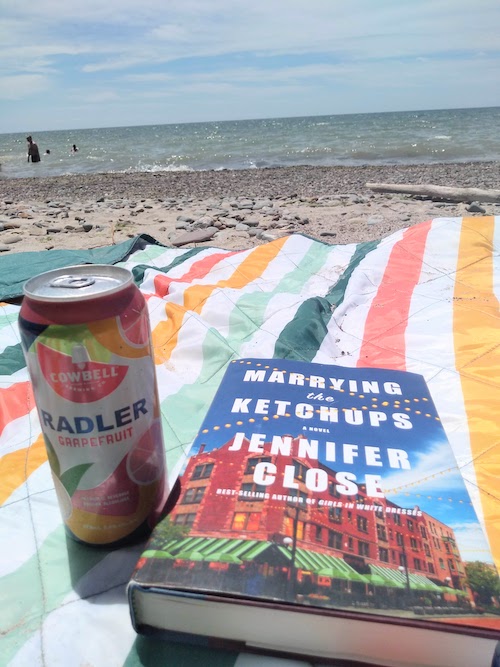
I’m happy to kick off my summer reading this weekend with Jennifer Close’s Marrying the Ketchups, which my friend Marissa recommended and which I loved so fully completely and devoured in a day. (Being able to read a novel in a day is my definition of a proper holiday, in addition to buttertarts.) I loved it so much, and it is the kind of book that, if a man had written, people would be heralding its emotional acuity and literary genius. Plus it was blurbed by Katherine Heiny and she was thanked in the acknowledgements, which is pretty much my literary catnip.
July 4, 2022
A Convergence of Solitudes, by Anita Anand
When I was on the radio last week talking about great books for REreading Canada, Anita Anand’s A Convergence of Solitudes was the one title I hadn’t yet finished reading, so I’m happy to report that I finished it this weekend and it lived up to my expectations and then some.
How do you tell a story that connections Quebec nationalism in the 1970s to the Partition of India in the 1940s, weaving in threads about Operation Babylift during the Vietnam War, colonialism in Ireland, and the experience of growing up as a person of colour in Montreal, creating a novel that’s not hitting its readers over the head with symbolism and parallels, but creating an organic and realized narrative that also remembers to run on its own steam?
Why, by structuring the novel as a double album, of course, this structure an homage to one of the story’s main characters, Serge Giglio, who headed a Quebec nationalism progressive rock band in the 1970s that never exploded like it might have because he refused to compromise and sing in English. So that the book becomes a sort of novel in pieces, but the pieces are drawn together compellingly and satisfyingly, moving between decades and characters and continents to culminate in what feels like an epic.
Rani grows up in 1970s’ Montreal, the daughter of immigrants, and finds herself drawn to Sensibilité, Serge Giglio’s band, to the point of obsession, though her relationship to its lyrics are complicated as a brown woman in Quebec who was barred from French schooling because she wasn’t baptized. When she meets Serge’s young daughter Mélanie, adopted from Vietnam, she’s drawn to the child because of her affinity for her father’s music, but perhaps it’s more than that. And when she connects with Mélanie again almost two decades later, this is affirmed for her, and she begins to wonder for the first time about her own parents’ experiences in Partition-era India and if she might be any more connected with these stories than she is the ideas Serge sings about in his songs.
While Rani serves as the main point of convergence between the various solitudes explored by Anand in her novel, the other characters—Sunil and Hima, her parents; Serge; his English wife Jane; Mélanie herself—are just as central to the text, the narrative portraying their various points of view and how these unfold over decades and between nations and continents, the connections between them (and also disruptions) serving to complicate notions of solidarity and independence and colonialism in a way that’s illuminating and fascinating, enlivening and unravelling ideas that might sound neat and tidy as political slogans but are more difficult to contend with in actual fact.
June 20, 2022
Susanna Hall: Her Book, by Jennifer Falkner
“July 11th, 1643: It is the summer of her 61st year. A year of turmoil up and down the country. The King has abandoned his seat in London and his army charges about fighting his own people. A year of exorbitant taxes. Poor harvests. Neighbours turning against each other. A year in which Susanna wonders how many years are left to her.”
For fans of Hamnet, by Maggie O’Farrell, I recommend Jennifer Falkner’s Susanna Hall: Her Book, a gorgeous and haunting novella inspired by another Shakespeare woman, this time the poet’s eldest daughter, Susanna. Physician’s widow and respected healer, the tensions of England’s civil war have arrived to roost within her home.
With historical fiction that reads as timeless and achingly relevant, Falkner manages to have 150 pages contain the broadest emotional spectrum, and lets just three days tell the story of one woman’s remarkable lifetime.
I loved this book, out now from Theresa Kishkan and Anik See’s Fish Gotta Swim Editions, indeed a pleasure to read and to hold. If you’re intrigued, check out the posts on Falkner’s Pinterest page!
